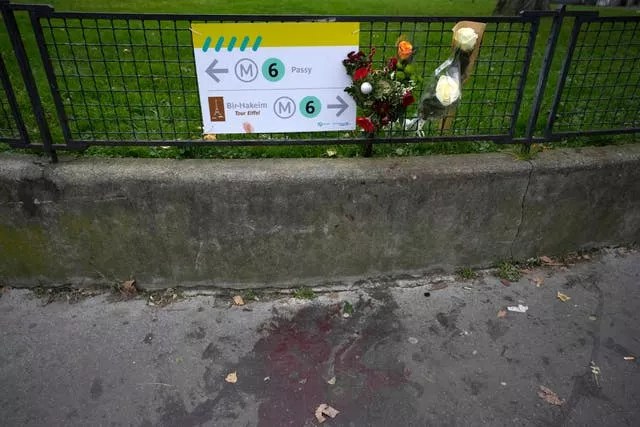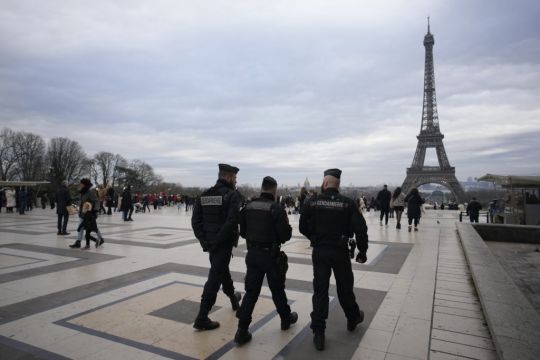French police investigating a fatal attack near the Eiffel Tower at the weekend are looking into the mental health of the suspect who allegedly swore allegiance to the Islamic State group before stabbing a German-Filipino tourist to death and injuring two other people with a hammer.
The French national taken into police custody, Armand Rajabpour-Miyandoab, has a history of mental illness and of Islamic radicalisation, officials said.
He faces a possible preliminary charge of terrorist-related murder for the attack on Saturday night that has raised fresh questions about security in the French capital before it hosts the Olympic Games next year.
The stabbing took place within the future security perimeter that will blanket both banks of the River Seine when the 2024 Games open on July 26 with a show and parade for the 10,500 athletes along the waterway that cuts through the French capital.
Expected to draw hundreds of thousands of spectators, the size and scope of the outdoor extravaganza make it a particularly daunting public safety challenge in a city that has been repeatedly hit by extremist attacks.
Sports Minister Amelie Oudea-Castera insisted on Monday that France is capable of safeguarding the opening festivities.
They will be the first held outside a stadium, which are easier to secure. There are no back-up plans to move the event elsewhere, but the scale of the show and spectator numbers could be tweaked, if necessary, the minister said.
“We don’t have a Plan B. There is a Plan A within which there are several sub-plans,” she said on France Inter radio.
The suspect in Saturday’s attack previously spent more than three-and-a-half years in prison on a terror conviction.
He was on a police list of feared radicals, was being watched by France’s counter-terrorism surveillance agency and received mandatory psychiatric care until April of this year, officials said.

Interior minister Gerald Darmanin said on Monday: “This is a case that links radical Islam, undeniably, and mental illness. I must tell the French people the truth – that there are numerous cases like this.”
He added that around one-third of suspected radicals under surveillance have psychiatric issues.
Speaking to broadcaster BFMTV, the minister said French officials should be given greater powers to force people in such cases to seek psychiatric treatment.
“There appears to have been a psychiatric failing because doctors on multiple occasions decided that he was better, that he was more normal and could live freely,” he said.
A few weeks before the attack, the suspect’s mother had told police that her son had stopped taking his medication, but she was apparently too scared of him to ask that he be admitted to hospital, the minister said.
“She didn’t want to, apparently because she was scared of her child, which is understandable,” he said. “She came back a few days later to say that he seemed better.”
The attacker apparently targeted victims at random.
After fatally stabbing the 23-year-old tourist, he crossed a bridge to the city’s Right Bank and assaulted two people with a hammer. The British national and French citizen were treated at a hospital before being released, authorities said.
In a video recorded before the attack, Rajabpour-Miyandoab swore allegiance to the Islamic State group and expressed support for Islamic extremists in Africa, Iraq, Syria, Egypt’s Sinai, Yemen, Iran and Pakistan, according to France’s anti-terrorism prosecutor, Jean-Francois Ricard.
The video, in Arabic, was published on Rajabpour-Miyandoa’s account on X, formerly Twitter, where his recent posts included references to the Israel-Hamas war, the prosecutor said.







